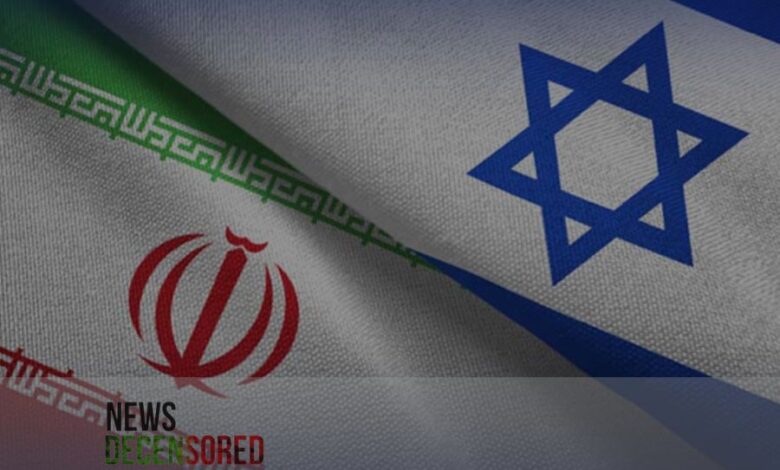A comparative assessment of the military strength of Iran and Israel

Iran’s missile and drone attacks on Israel have raised fears of a major war in the Middle East again, with the latest development being news of Israel launching a missile attack on Iran. American officials told on Friday that Israel had launched a missile attack on Iran after Iranian media reported that an explosion had been heard near the city of Isfahan.
It should be noted that Isfahan is located about four hours or 350 kilometers (217 miles) south of Tehran, the capital of Iran. Isfahan has a significant military airport and several Iranian nuclear facilities in the province, including the city of Natanz, which is the center of Iran’s uranium enrichment program.
Earlier, Iran fired more than 300 drones and missiles at Israel in retaliation after an alleged Israeli attack killed Iranian Quds Force commanders in Damascus. Israeli military spokesman Rear Admiral Daniel Hagari said in a televised statement that the attack involved 170 drones and 30 cruise missiles, none of which entered Israeli territory, and 110 ballistic missiles, of which a minimal number reached Israel.
After this Iranian attack on Wednesday night, the Chief of Staff of the Israeli army, Herzi Halevi, said on Monday that his country would respond to the attack. Still, he did not specify when and what the response would be. On the other hand, Iran’s Deputy Foreign Minister Ali Bagheri Kani also told state TV on Monday night that any possible attack by Israel would be answered in seconds, not hours.
Israel, after Iran fired more than 200 missiles and drones without suffering any significant casualties and Iran launched such a massive attack on its long-time enemy, both countries are trying to make their point. That they are strong. There is a land distance of about 2,152 km between Iran and Israel, and Iran has demonstrated that the missile program it has been working on for a long time has made significant progress by sending its missiles there.
Iran’s missile program is considered the largest and most diverse in the Middle East. In 2022, General Kenneth McKenzie of the US Central Command said that Iran had “more than 3,000” ballistic missiles. On the other hand, there is no definitive confirmation of how many missiles Israel has, but it is clear that if any country in the Middle East has the most advanced missile arsenal, it is Israel.
It has developed this stockpile of missiles in the last six decades in collaboration with other friendly countries, including the United States, or on its own. According to a report by the CSIS Missile Defense Project, Israel also exports missiles to many countries. Israel’s most famous missiles include Delilah, Gabriel, Harpoon, Cherokee 1, Jericho 2, Jericho 3, Laura, and Popeye.
But the backbone of Israel’s defense is its Iron Dome system, which is capable of stopping any kind of missile or drone attack in time. Although Iran has fired hundreds of missiles at Israel, Israel has more experience in conducting guerilla operations in other countries and has always been successful.
But when it comes to a possible war between the two countries, given Iran’s size and military strength, it is clear that Israel will not do so. Its superiority is air power, missiles, and drones; if it reacts, it will likely do so through them.
Well, in the past, high-profile Iranian military and civilian figures have also been killed in similar attacks. However, Israel has often not formally acknowledged it but has not denied it either. Another aspect of this war could be a cyber attack, and Israel seems quite vulnerable in this area. The reason is apparent that Iran’s defense system is not as advanced as Israel’s defense system, so a cyber attack on Israel’s system is more straightforward.




